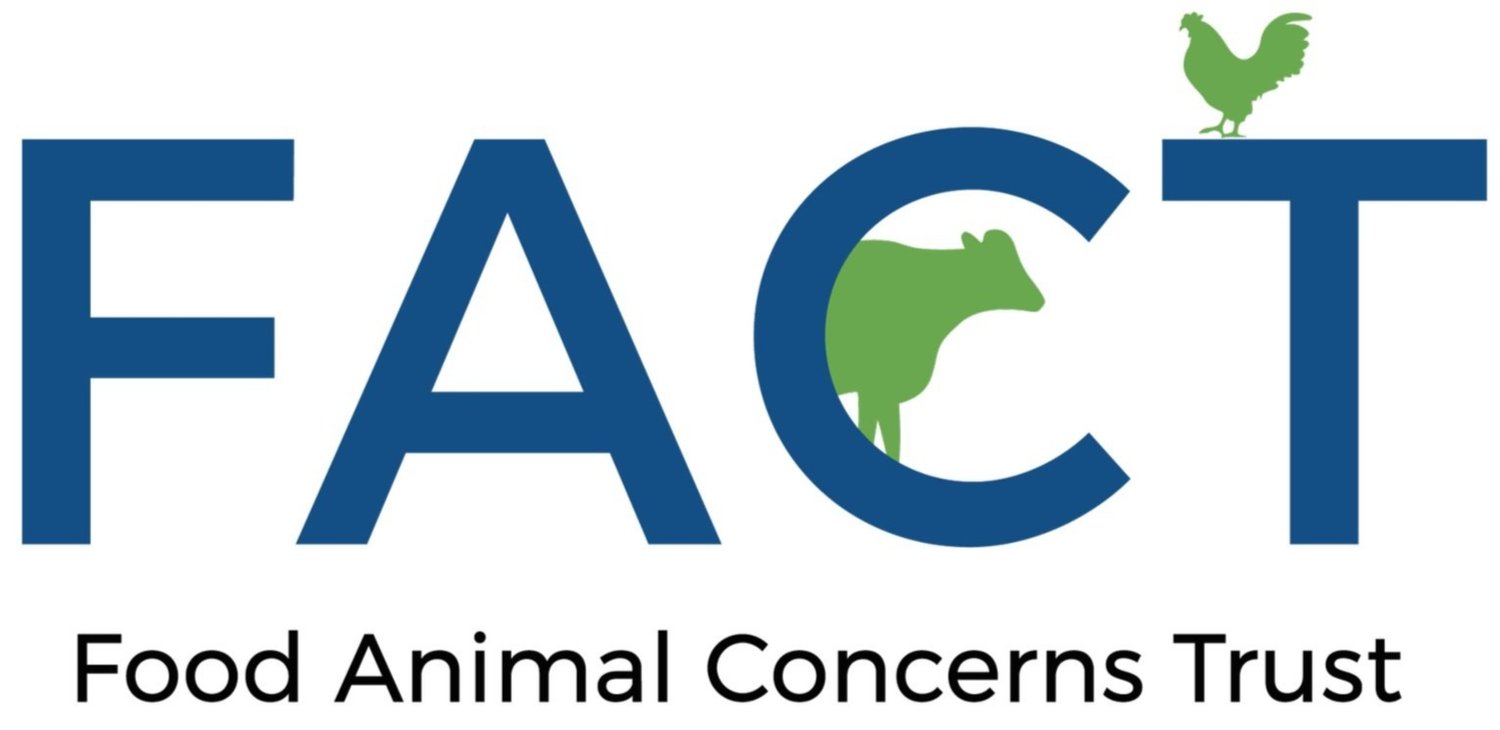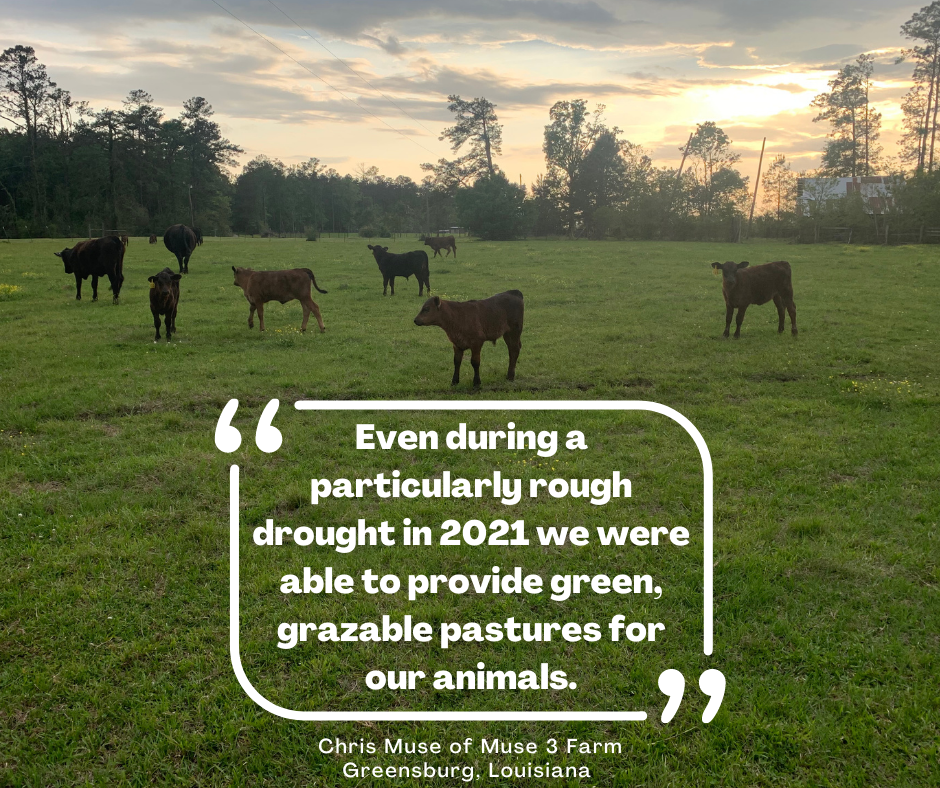Profiles in Conservation: Muse 3 Farm
Muse 3 Farm brothers and co-owners: Chris, Mitte, Burnell and Allen
Muse 3 Farm is located just 50 miles slightly northeast of Baton Rouge and 85 miles northwest of New Orleans in peaceful Greensburg, Louisiana and is owned and operated by four of the seven Muse brothers. Muse 3 Farm does a little bit of everything - from goats to cows to vegetables, which means the brothers have their work cut out for them.
Chris, Allen, Mittie and Burnell Muse all retired from their high-profile jobs and recently returned to the land their grandfather purchased over 100 years ago. The irony of their pilgrimage back to farming after decades of running away from the life is not lost on Chris. “We couldn’t wait to get away and now we’re doing all we can to get back,” he said.
The first hurdle the brothers faced was to purchase back some of their grandfather’s original 300-acre farm. They made deals with siblings and cousins then lucked out when a dissolved papermill sold them the rest of the land they needed to start Muse 3 Farm. Before the papermill dissolved, it clearcut the land leaving only stumps and debris behind. With the help of an EQIP (Environmental Quality Incentives Program) cost-share grant Chris and his brothers planted trees to start the renovation of this overused land.
Chris and his brothers might be considered New and Beginning farmers, but they are no strangers to conservation practices. In FACT, Chris’ brother Burnell spent his career working for NRCS (National Resource Conservation Service) which is a program under the USDA.
With this “in house” experience, Muse 3 Farm uses many soil conservation practices that have their neighbors taking notice. From managed multi-species, intensive rotational grazing that is slowly replacing diminished topsoil, to perennial plantings that keep soil in place with their intertwined mats of roots (keeping water runoff to a minimum), to planting nitrogen fixing legumes that reduce the need for added synthetic fertilizers, the Muse brothers are seeing real results. During a particularly rough drought in 2021 Muse 3 Farm had green grazable pastures while their neighbors fed hay making this family farm the envy of their area.
Chris’ childhood memories of bats circling the family homestead adeptly swooping and turning catching insects at dusk is one he sorely misses. He views it as a real example of a land in need of help. To reverse this damage Chris is focused on creating an environment that welcomes all wildlife, insects in particular. The brothers are working with their NRCS agent to plant fruit and nut trees. Chris also allows for buffers between fields and is planting wildflowers all to put his piece of the world back in harmony with nature. He envisions sitting on his porch at dusk reliving his childhood memory of peacefully watching a cauldron of bats feasting before dark.
Chris appreciates the importance of a healthy ecosystem which is why he plants natives & wildflowers for local wildlife.
The farm has received multiple EQIP (Environmental Quality Incentives Program) cost share grants and is in the process of applying to participate in the CSP (Conservation Stewardship Program). Chris and his brothers are committed to educating their community about these conservation programs and have a goal of convincing 250 friends and farming neighbors to sign on to using NRCS conservation practices. Chris’ attitude that “if we can give them the proof these programs work then they will be more likely to use them” is at the core of his focus on educating his community.
Chris feels he is always learning and growing as a steward of his family’s land. He appreciates being able to walk outside his home in the morning to the beautiful sight of land that heals and rejuvenates. It’s a hard life but there are definitely rewards.
Muse 3 Farm is a FACT Fund-a-Farmer Grant recipient.
To help farms mitigate and adapt to the climate crisis, FACT supports the Agriculture Resilience Act (ARA). This farmer-driven, science-based bill calls for (1) increasing investment in agricultural research, (2) improving soil health, (3) supporting the transition to pasture-based livestock, (4) ensuring farmland preservation and viability, (5) promoting on-farm renewable energy, and (6) reducing food waste.



